WHAT ARE PERIODS AND
HOW TO TREAT IT?
WHAT ARE PERIODS?

A period is a condition in which there is the release of blood
from a girl’s uterus, out through her vagina. In other words, periods or
menstruation is the shedding of the lining of the uterus (endometrium)
accompanied by bleeding.
There are many queries in your mind (especially teenagers) related
to periods, which you find difficult to clear them. You may hesitate to talk
about periods with your relatives, family as well as your friends, etc.
It
might be because of that, you are not so frank with them and you feel shy to
speak to them on this topic. In this article, there is a discussion about
periods that will help you the most.
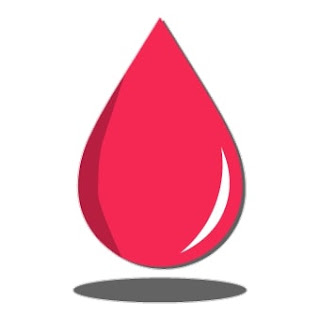
Young girls are often between 8 and 15 years old when they
experience their first period. The first cycle might be quite irregular. It occurs in approximately monthly cycles throughout a woman’s
reproductive life, except during pregnancy.
Periods or menstruation starts during puberty (at menarche) and
stops permanently at menopause. The
menstruation period normally ranges from about 25 to 36 days.
Only 10 to 15% of
women have cycles that are exactly 28 days. At least 20% of Women’s menstrual
cycles are irregular. Hormones regulate these cycles.
Menstrual bleeding lasts 3 to 7 days, averaging 5 days. Blood loss
during a cycle usually ranges from 1/2 to 2 1/2 ounces.
WHEN DO MOST GIRLS GET THEIR PERIODS?
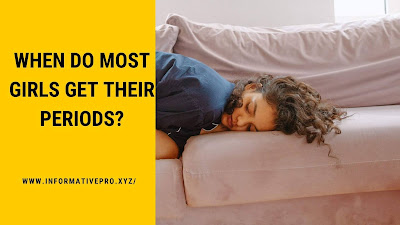
Generally, most of the girls get their periods at the age when
they are around 12. Many of them may get it anytime between the ages of 10-15.
There is not a particular age at which a girl gets her periods.
The following first period signs indicate that a girl’s periods
will start soon:
1. A girl may get her periods
about 2 years after her breasts start to develop.
2. Another sign is vaginal discharge
fluid (sort of like mucus) that a girl might see or feel on her underwear. This
discharge usually begins about 6 months to a year before a girl gets her first
period.
WHAT ARE MENSTRUAL CYCLE SYMPTOMS?
PMS (premenstrual syndrome) is when a girl has emotional and
physical symptoms that happen before or during her period.
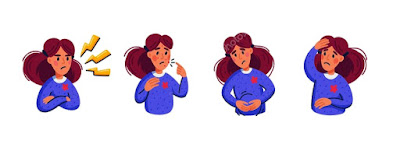
Premenstrual symptoms are not always the same in every woman or a
girl. Common periods symptoms are as follows:
- breast
swelling and tenderness - mood
swings - feeling
depressed, irritable, or bad-tempered - tiredness
or having trouble sleeping - headaches
- changes
in appetite and food cravings - feeling
clumsy - changes
to skin or hair - tension
- bloating
- acne breakouts
- leg,
back, or stomach cramping - premenstrual
syndrome
WHAT IS THE CAUSE OF PERIODS?
A period happens because of changes in hormones in the body. The
menstrual cycle is regulated by hormones. The ovaries release the female
hormones estrogen and progesterone. They stimulate the uterus and breasts to
prepare for possible fertilization.

These hormones cause the lining of the uterus (or womb) to build
up. The built-up lining is ready for a fertilized egg to attach to and start
developing.
If there is no fertilized egg, the lining breaks down and bleeds.
Then the same process happens all over again.
It usually takes about a month for the lining to build up, and
then to break down. That is why most girls and women get their periods around
once a month.
The menstrual cycle has three phases:
- Follicular
(before the release of the egg) - Ovulatory
(egg release) - Luteal
(after egg release)
HOW TO DEAL WITH PREMENSTRUAL SYMPTOMS?
There is a wide range of options to help you to manage your
symptoms and allow you to get on with your daily life. Regular exercise, reducing stress, and dietary modifications will
help you to reduce symptoms.
You should do the following to get relief and to treat PMS
(Premenstrual Symptoms):
- Eat
small and more frequent meals. - Limit
intake of salt, caffeine, and alcohol. - Eat
more fruit, vegetables, whole grains, and calcium-rich foods. - Use
warm compresses in the lower belly as they help to provide relief for your
cramps. - Do
more exercise. - Eat a healthy
balanced diet - Try
to reduce and manage stress,
for example by using meditation,
yoga,
and mindfulness.
WHAT ARE THE CAUSES OF NORMAL MENSTRUAL CYCLE?
The exact cause of PMS is not known. It could be linked to changes
in the levels of your hormones and body chemicals.
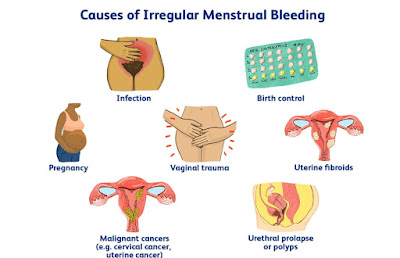
The levels of your hormones change during your menstrual cycle.
Some women are more sensitive to these hormonal changes, which can lead to the
symptoms described. Women who use some forms of hormonal contraception are less
affected by PMS.
PMS has also been linked to a variety of chemical substances
in your blood called neurotransmitters, such as serotonin and
gamma-aminobutyric acid (GABA).
WHAT ARE THE MEDICATIONS TO TREAT PMS?
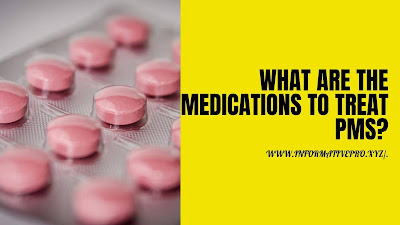
There are medications that can treat menstrual symptoms. They
should be taken while contacting a healthcare provider or a doctor. These are:
- selective
serotonin uptake inhibitors (SSRIs), such as fluoxetine, paroxetine, and
sertraline - non-steroidal
anti-inflammatory drugs (NSAIDs), including ibuprofen or naproxen - diuretics,
such as spironolactone - hormonal
contraceptives - Also,
there are therapies that include acupuncture and the use of certain
supplements. - Surgical
treatment, if you have severe symptoms and all other treatments have not
helped.
USE PADS, TAMPOONS, AND
MENSTRUAL CAPS
There are many choices for you to
deal with period blood. Sanitary products soak up or collect the blood released
during your period. The
main types of sanitary products are:
Sanitary pads:
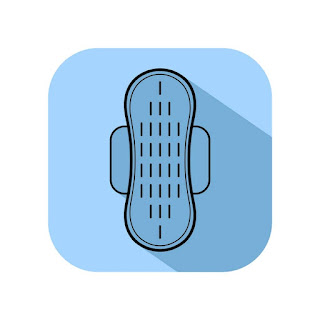
Most girls use pads when they first get their period. Pads are
made of cotton and come in lots of different sizes and shapes. They have sticky
strips that attach to the underwear.
Tampons:
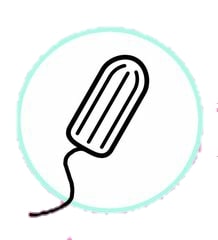
Many girls find tampons more convenient than pads, especially
when playing sports or swimming. A tampon is a cotton plug that a girl puts
into her vagina. Most tampons come with an applicator that guides the tampon
into place. The tampon absorbs the blood. You should not leave the tampon for
more than 8 hours because this can increase your risk of a serious infection
called toxic shock syndrome.
Menstrual cups:
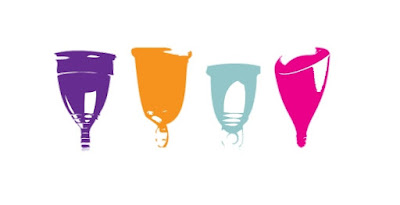
Many girls find tampons more convenient than pads, especially when
playing sports or swimming. A tampon is a cotton plug that a girl puts into her
vagina. Most tampons come with an applicator that guides the tampon into place.
The tampon absorbs the blood. You should not leave the tampon for more than 8
hours because this can increase your risk of a serious infection called toxic
shock syndrome.
WHY SHOULD YOU KEEP TRACK OF YOU MENSTRUAL CYCLE DAYS?
- If
your periods are regular, tracking
them will help you know when you ovulate when you are most likely to get
pregnant, and when to expect your next period to start.
- If
your periods are not regular, tracking them can help you share any problems with your doctor or nurse.
- If
you have period pain or bleeding that causes you to miss school or work,
tracking these period symptoms will help you and your doctor to find treatments that work for you. Severe pain or bleeding that causes you to miss regular activities is not normal and can be treated.
WHAT ARE THE PROBLEMS RELATED TO PERIODS?
At times, there are problems or irregularities in your menstrual
cycle. Some common problems are:
1.
Amenorrhea:

In this, periods are absent for at least 90 days. The factors
responsible for it include pregnancy, breastfeeding, eating disorders,
excessive exercising, and stress.
2.
Dysmenorrhea:
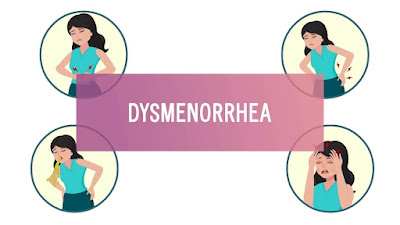
Dysmenorrhea refers to severe menstrual pain. It is caused due to
uterine fibroids, endometriosis, and excessive levels of a hormone called
prostaglandin.
3.
Abnormal uterine bleeding:
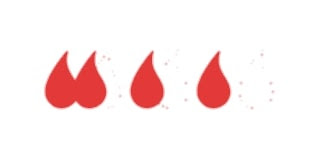
In this condition which completely differs from normal menstrual
bleeding. You might experience bleeding between periods or after sex. There
might be vaginal spotting, unusually heavy or prolonged menstrual bleeding, and
postmenopausal bleeding.
WHEN SHOULD YOU REFER A DOCTOR?
If your menstrual cycle is getting affected due to some medical
conditions, you should consult a doctor or a healthcare provider. Visit a
doctor if there is:
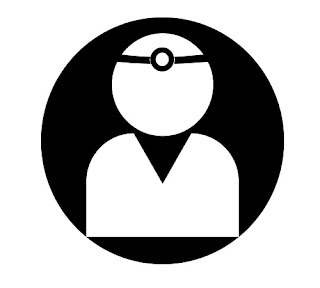
- abnormal uterine bleeding
- any postmenopausal bleeding
- not experienced a period of 15 years of age or within 3
years of breast development - no periods for more than 90 days
- irregular bleeding between periods
- menstrual bleeding that lasts for more than 7 days
- periods occurring more often than every 21 days
- heavy vaginal bleeding that requires a tampon or pad
change every 1 to 2 hours - severe menstrual pain
- signs of toxic shock syndrome.
FREQUENTLY ASKED QUESTIONS (FAQ):
Q1. Do Periods Happen Regularly
When Menstruation Starts?
ANS: For the first few years after a girl starts her period, it may
not come regularly. This is normal at first. By about 2–3 years after her first
period, a girl’s periods should be coming around once every 4–5 weeks.
Q2. Can a Girl Get Pregnant as Soon as Her Period Starts?
ANS: Yes, it’s a completely true fact that a girl can get pregnant as
soon as her period starts. It could be because the girl’s hormones might
already be active. If a girl has sex, she can get pregnant, even though she has
never had a period.
Q3. How Long Do Periods Last?
ANS: Periods usually last about 5-7 days.
Q4. How to deal with cramps during
periods?
ANS: If you are fed up with cramps, just put a warm heating pad on
your belly.
Q5. How Much Blood Comes Out in
period time?
ANS: It may look like a lot of blood, but a girl usually only loses a
few tablespoons of blood during the whole period. Many of you change your pad,
tampon, or menstrual cup for about 3-6 times a day which is normal.
Q6. Will I Have Periods for the
Rest of My Life?
ANS: No, around age 45 – 55 your periods will permanently be stopped.
This is termed as menopause. Also, you cannot be pregnant if your periods are
over (i.e. after menopause).

Leave a Reply